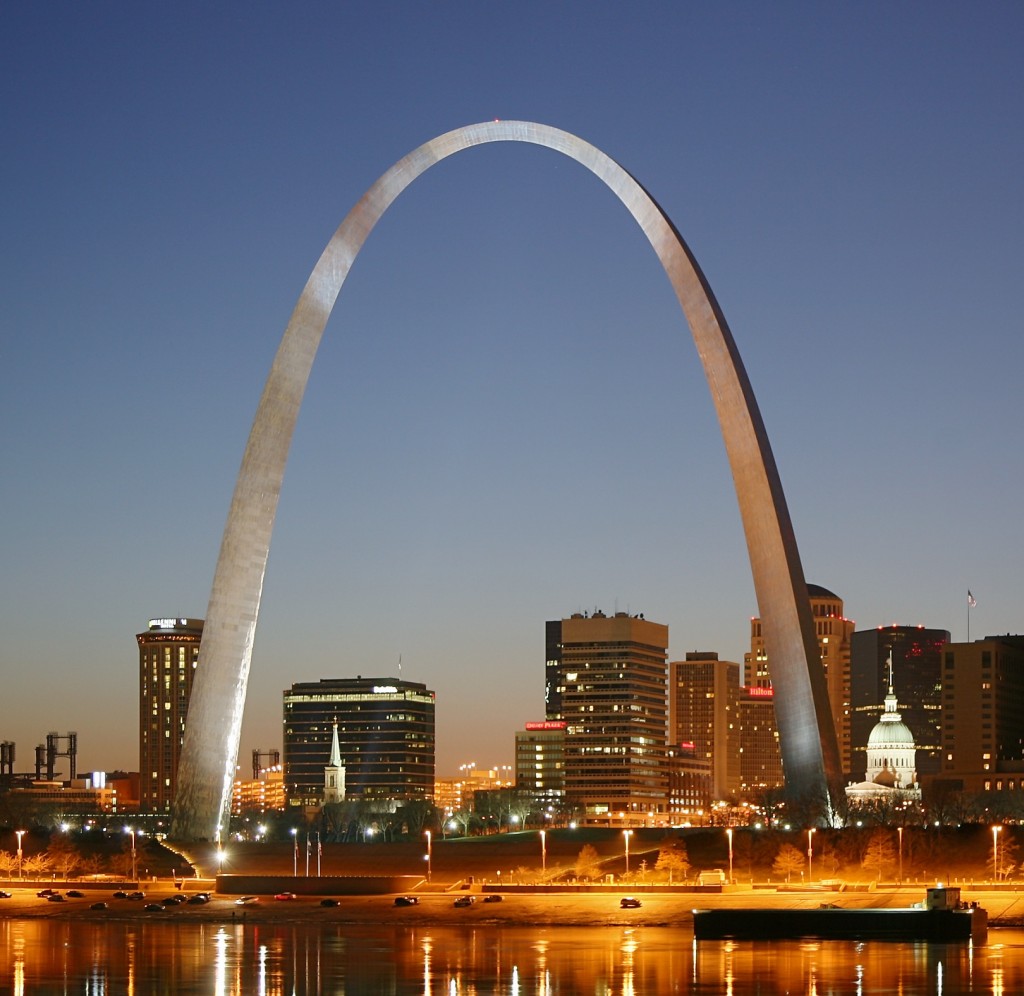My heart aches for the brokenness in my adopted hometown of St. Louis, Missouri.
I realize that anyone commenting on the situation in Ferguson becomes open to angry complaints of “You didn’t mention ____!” or “How dare you not say more about _____!”
So please understand that this is NOT intended to be a comprehensive account of every important fact and issue in the situation.
I do not claim to know nearly as much as the bi-racial grand jury which spent weeks deliberating over the details. Nor do I believe in the divine infallibility of human juries (especially not if they include any liberal United Methodist clergy).
Over the last couple of months, it has been fascinating to see the wildly varied responses on my Facebook feed, reflecting the vast political and racial diversity of my friendships. A CNN poll shows a dramatic if unsurprising racial divide in how Americans view this case. On Monday night, posts I saw ranged from expressing support for Darren Wilson, the white policeman who shot black teenager Michael Brown in what he says was self-defense, to declaring “Bring on the riots for change” and “I hope this is worse than LA.” (The latter sentiment was expressed by a liberal, white United Methodist friend who lives far from St. Louis.)
It has frankly seemed that people across the spectrum have been rushing to judgments of one sort or another, without waiting to get all the facts, according to their pre-conceived biases shaped by their political opinions and personal experiences. I am not convinced that many comments of pundits and organizations with more public roles have been much better. Some of the commentary smells like crass political opportunism.
I will also admit that as I watched the live television feed on Monday night – the horrifying footage of flames engulfing cars and buildings, gunshots, the remains of looted stores, and large groups of protesters ominously blocking highway traffic – I felt a lot of fear and anger.
My beloved parents still live and work in the area. And I am ANGRY at anyone who would do anything to contribute to any situation that would put my loved ones in potential danger. When it comes to your loved ones potentially being in harm’s way, it has a way of overshadowing big-picture issues.
As an African-American high school friend who is also from St. Louis helpfully pointed out, the criminal opportunists taking advantage of this situation are not even necessarily from the areas they are trashing – don’t think that residents of affected areas are not upset about the wreckage being imposed on their communities and their families.
It is important for white evangelical Christians to understand that the anger of our African-American neighbors comes from very deep, long-simmering pain, and that many of these suffering neighbors are our brothers and sisters in Christ whose suffering we are biblically obligated to share.
Christian compassion demands we acknowledge and address the very different sorts of fear, frustration, anger, and vulnerability being felt by black Americans and white Americans, especially in the St. Louis area, right now. No, I am not “equating” anything. But those who are serious about following Jesus have no right to disregard the pain of our neighbors, especially not of our fellow Christians, however many excuses people of all races and backgrounds want to make for invalidating or trumping the pain of the Other.
While hardly unique to any locale, the geographic racial and class stratification of the St. Louis metro area, along with its longtime lack of a decent public transit system, is rather hard to miss. One of the most confusing things for me when my family moved there as I began 10th grade was how everyone talked about “North County,” “West County,” and “South County” as if those were the official names of actual counties. But the fact is that these are simply very different regions of one St. Louis County. Similarly, “North St. Louis” and “South City” are different sides of the same city.
My experience as one of the few non-black members of my high school’s African-American student club helped open my eyes to the sad reality that members of my supposedly more enlightened Millennial generation are by no means immune from the evil virus of white racism, not even young people from “good,” white-collar families.
With all this in mind, I offer this prayer for my adopted hometown:
Father God,
I praise You for being infinitely more powerful than all the evil and suffering presently plaguing this fallen world;
I thank you for keeping my beloved mother and father safe;
I thank you that the violence on Monday night was not worse;
May You lead white American Christians to confession and repentance of our sin in all those too-frequent times in which we took the easy road of turning a blind eye to the deep, ongoing suffering and pain of our African-American neighbors;
Please send special comfort to Michael Brown’s family in this very difficult time for them;
Please protect Darren Wilson and all others who are vulnerable from anyone attempting vigilante “justice”;
Please protect communities across America from mob violence and mistreatment by police;
Please quench the poisonous spirit of collective blame against “the police,” “the blacks in Ferguson,” “the white man,” or the broad category of anyone involved in protests;
Please lead those who You have adopted to become your sons and daughters to make ourselves available and open to humbly, compassionately listen to and learn from the pain, fear, and vulnerabilities of our neighbors whose experiences and perspectives are very different from our own;
Please guard all parts of the body of Christ from closing their hearts and minds to any other part of the body,
In the precious Name of Jesus,
Amen.





Comment by MatWeller on November 26, 2014 at 11:49 pm
Amen.